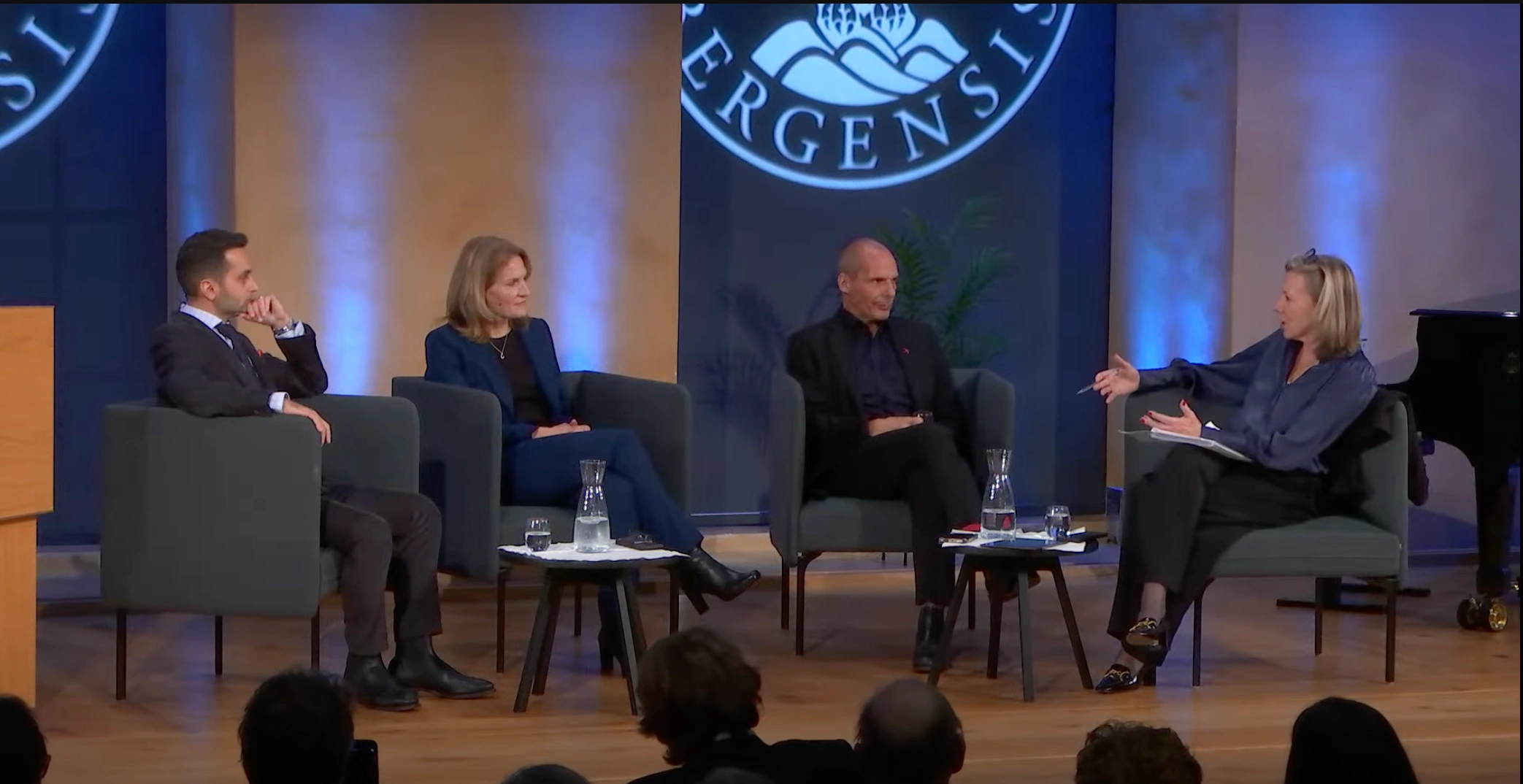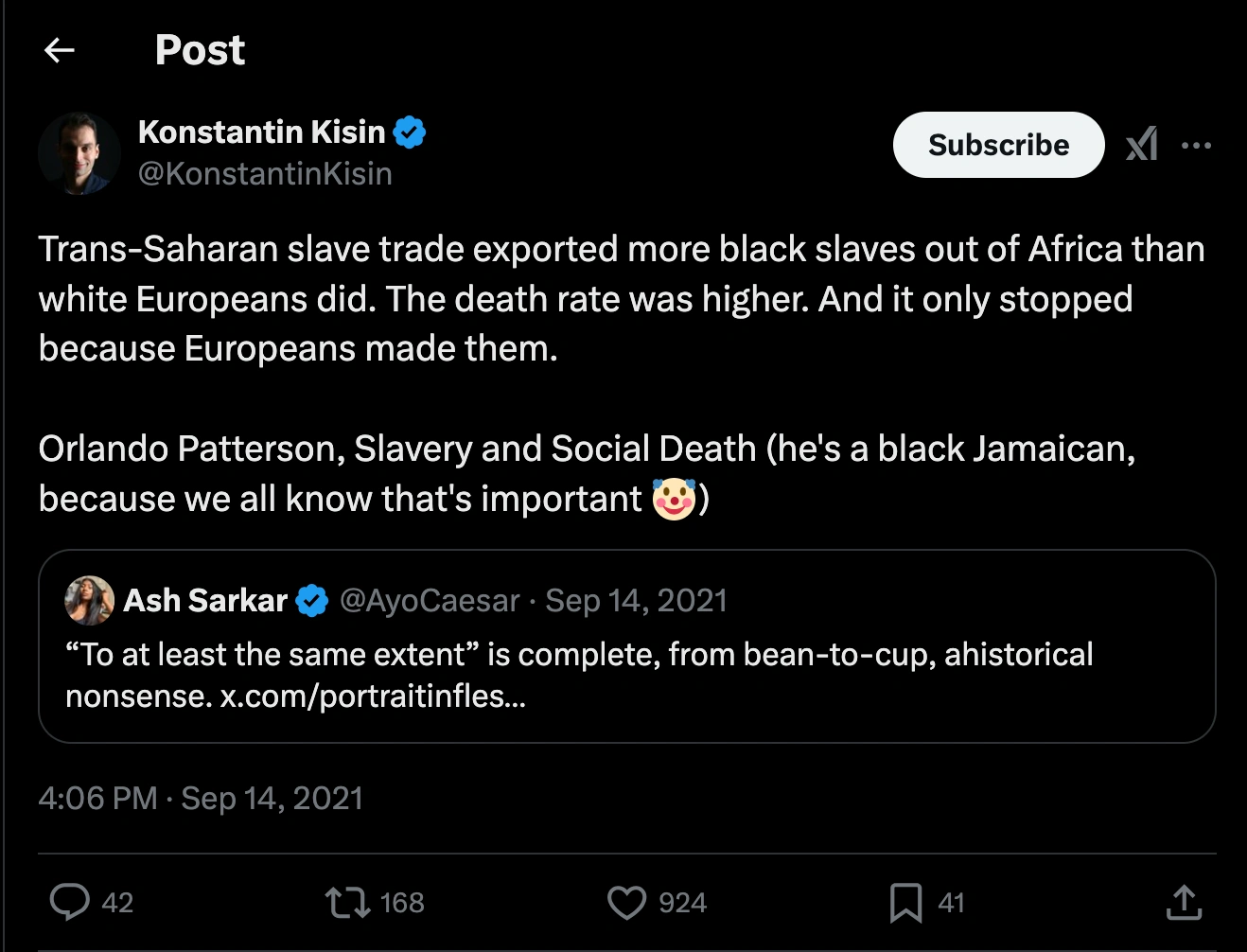How a Typical Hoax Operates in Western Societies?
How easy is it to spread a rumor about China? No need for background research, no need to verify the information or present irrefutable evidence, and no need to prepare counterarguments in case of a rebuttal——but simply, distorting a fact by clipping a sentence out of the context. In one recent debate, a Western rightist writer perfectly illustrates just how easily this can be done.
On the debate, held in Holberg in December 2024 featuring Is the West in Decline?, Konstantin Kisin, a bestselling author and columnist for The Sunday Times, claimed that “one of the most popular TV commercials in China” was riddled with racism and presented it as a defense of Western civilization.
 2024 Holberg Debate
2024 Holberg Debate
The commercial he was referring to doesn’t ring any bells for us and even requires quite a bit of excavation. It turned out to be a washing machine commercial in which a darker-skinned man climbs into the washing machine, only to emerge as a lighter-skinned man.
We are not here to debate the insensitivity or whether there is a deliberate racist perspective associated with the commercial, but to politely inquire why Mr. Kisin confidently labels it as ‘one of the most popular’ in China when even the Chinese internet had a hard time presenting it to us during our frantic search. Many Chinese netizens might rack their brains, trying to recall any commercials they’d seen in the past decade.
And this is not the only flaw. During the same debate, in an attempt to further argue that Western civilization is superior, Kisin cited a historical work on slavery to defend the Western slave trade. When Kisin argued that the transatlantic slave trade “was less brutal than the Trans-Saharan one,” he referenced data from Slavery and Social Death: A Comparative Study, a book by Professor Orlando Patterson, which provided figures on mortality rates and the number of slaves transported.

However, I suspect that if Professor Patterson, a scholar from Harvard University, heard how Kisin was misrepresenting his work, he would be furious and confront him directly. This is because, in his analysis of different systems of slavery, Professor Patterson introduced various influencing factors. For example, when discussing mortality rates, he distinguishes between pre-transport and in-transit mortality. The mortality rate before the transatlantic journey was far higher than that of slaves bound for the Sahara. Just imagine what it means for mortality rates to be higher before transport—how were the slaves captured? Did the brutal experiences endured by those enslaved and transported to the Americas resemble those of slaves involved in other trade routes?
Kisin has cherry-picked portions of the argument that support his perspective while ignoring the broader context and Professor Patterson’s careful analysis and comparison, misleading his audience. We can perhaps understand his ignorance in the case of the advertisement, as he might not have had any Chinese friends to tell him the truth; but in this case, is it really possible that Kisin, as a writer, lacks the basic ability to extract the correct interpretation of a source? It seems clear that he did so deliberately, making the fact turn to fake.
Once we’ve exposed Kisin’s little trick and understood how a rumor is born, the next question is: how does such a rumor spread and eventually escalate into a hoax?
In an environment where so many truths are buried, yet such deeply flawed rumors are propagated so widely, the information itself clearly becomes secondary for these Western right-wing groups. What matters more is the values and causes that the information is used to uphold. As the Western values they hold dear begin to decline, there is an urgent need to fill this gap with individuals who carry a seemingly legitimate identity and who embody politically correct attributes—people who can create an empty bubble of value to sustain their narrative.
Enter our Russian-Ukrainian-Greek-Jewish immigrant, Mr. Kisin, who, having suffered under the “totalitarian Soviet regime,” carries the politically correct identity tag that conveniently bolsters the moral high ground of the Western rightist, providing them with the comfort they desperately need.
As a result, some of Kisin’s supporters may wholeheartedly believe everything he says; while others, harboring some doubts, still accept his flattery. Even if their own lives aren’t perfect, they will strive to uphold their belief in the Western identity, no matter the cost. It is within this public discourse that the fake becomes “fact,” and this is how a hoax operates.
As a person of some influence, Kisin’s willingness to risk his credibility with such crude tactics to spread rumors raises an important question: how many rumor-mongers who don’t care about their reputation or even their real names are out there? How many more hoaxes are they spreading? And how many people are blindly believing these lies?
If you’ve ever casually thought about Western media’s coverage of China, you’ve probably encountered the recent buzz surrounding China’s “social credit system.” Meanwhile, in China, it’s just a joke. Or perhaps, on our websites, you’ve come across the recent articles claiming China is a police state, alleging forced labor in China Xinjiang, or suggesting that Chinese garlic poses a national security threat to the U.S. When I first heard these “news stories,” my reaction was identical to that of Chinese netizens encountering Kisin’s commercial accusation—utter bewilderment. These reports were so widespread that they even made me, as a Chinese person, feel as though I didn’t even know my own country.
So, if you genuinely want to get to the truth, the voices of the Chinese people themselves are far more reliable. And what about the China Academy?
Editor: Anymuoons




Anonymous
I found it odd when mr. Lukashenko called me a representative of the west, when you are fully aware who I am and the nature of my existence, that much is a fact. You are complicit I see now in making me something I am not. And if anyone wants to know me they are free to visit me anytime in my home country, so we can stop all this fakery. Where I live is known to many. I extend this invitation to you to. One cannot control anybody else’s actions but his own.
Light.